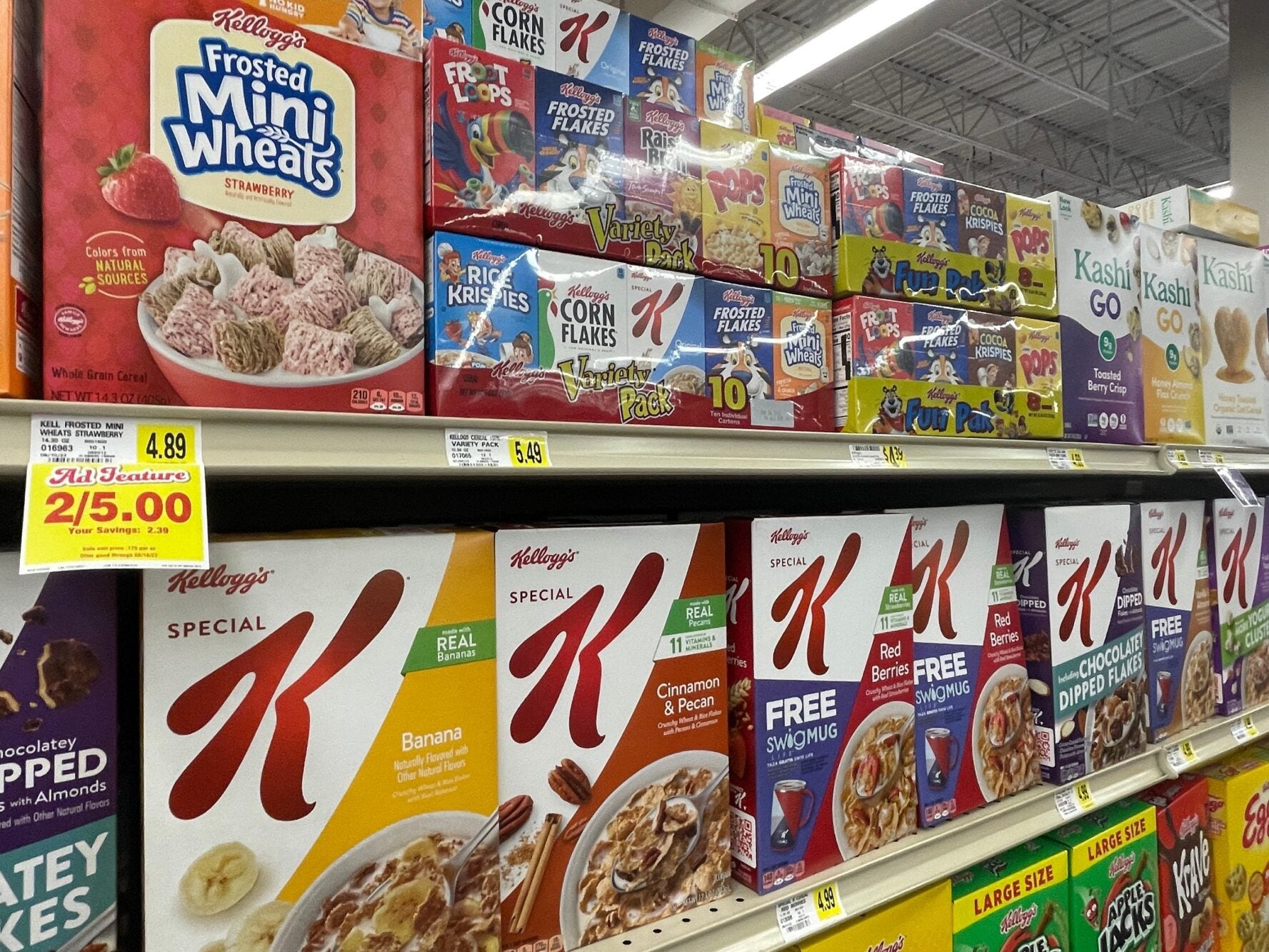[ad_1]

Kellogg chief Steven Cahillane aired some optimism this week that the food industry’s battles with supply chains and inflation are starting to subside.
However, a contest remains to balance price increases with volumes to varying degrees across operating regions, the chairman and CEO suggested as he pointed to a new era of sharper on-the-ball innovation, automation adoption and better relationships with customers.
“There is no question that innovations have to be better, they have to be performing right out of the gate,” he told analysts during a Q&A session to discuss Kellogg’s first-quarter results to 1 April. “Shelf space is more valuable than it’s ever been in my years in the business. Supply chains have had to become more agile, there’s no question about that.”
He said Kellogg had employed new technologies like “predictive” artificial intelligence (AI) and machine learning as the company moves towards a new business structure to be implemented by the year-end.
“The relationships with our customers, I think, again, during the pandemic, it was about how do we serve our consumers, our joint consumers in ways that we never had to face before. We had all sorts of challenges with respect to that. But now supply chains have come through stronger as well and the relationships with consumers, I think, are more end-to-end than they’ve ever been before,” Cahillane explained.
He added: “It’s not 1987 anymore – not to be too rosy about it, but it’s a new morning and it’s, I think, a very, very promising outlook as we look towards how our industry and how Kellogg will perform in the future.”
Input-cost inflation is expected to remain elevated at least through the first half of Kellogg’s fiscal year – in the mid-teens – as the company works through hedging contracts put in place before commodity prices started to come down.
The CEO provided some insight into how the external operating environment is panning out, noting “supply constraints, bottleneck shortages are improving almost everywhere”.
Cahillane continued: “Everything from the driver shortages that we talked about, the ocean freight shortages, containers being in the wrong place at the wrong time, all these things that only a year ago the entire industry was struggling with, have become much more normalised.”
However, in terms of price and elasticities, he said Europe, which sits within Kellogg’s EMEA division, is a “challenging environment” where “shoppers are doing some channel shifting”.
He added: “Hard discounters [are] clearly growing their businesses. That has a disproportionate benefit to private label. Within our portfolios, we’re seeing a little bit more – and these are modest coming from small bases – but a little bit more private-label growth in Europe cereal than we would be in the rest of the world.”
Kellogg reported sales for the quarter of $4.05bn, up 10.4% in reported terms and 13.7% on an organic basis.
“Price mix growth was sustained in the mid-teens, reflecting revenue growth management initiatives around the world, which we implemented during 2022 and right through quarter one 2023 as we continue to work to offset high input-cost inflation,” CFO Amit Banati explained.
“Volume declined, reflecting price elasticity, though not as much as we had expected for quarter one. Our outlook continues to prudently assume that price elasticities will sustain their upward move towards historical levels and, depending on the direction of input-cost inflation, that price mix will begin to lap last year’s sizable revenue growth-management actions.”
Kellogg tweaked its full-year guidance for organic growth to 6-7% from 5-7% and also upped the outlook for adjusted operating profit – on a currency-neutral basis – to 8-10% versus 7-9% previously. That metric was 18% in the three months to 1 April.
The expected decline in adjusted earnings per share, also on a currency-neutral basis, was paired to minus 1-3%, compared to a 2-4% drop. EPS climbed 2.7% in the quarter to $1.13.
[ad_2]
Source link
